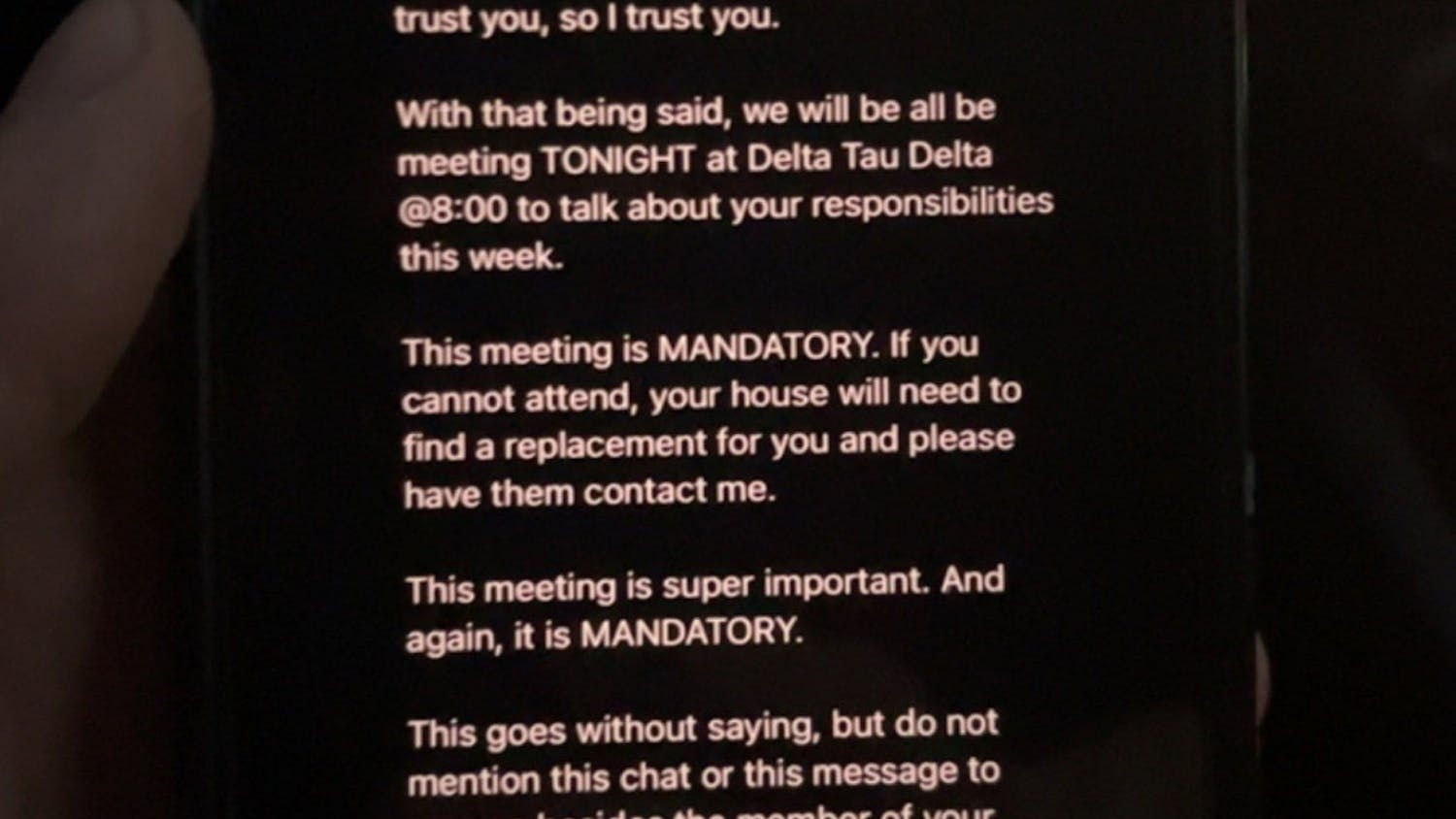“If you see something, say something.” This slogan can apply to suspicious activity monitored by the Department of Homeland Security, but it should also apply to our everyday interactions.
If you hear a friend say something racist but don’t say anything, who will?
White supremacist Richard Spencer coming to our school showed us it can be easy to criticize an outsider who comes to campus while ignoring your own problems. We need people to step up and call out what they see instead of deluding themselves into thinking racism is only a problem when a white supremacist comes to town. I stand by what I said two weeks ago: while Spencer came and went, there’s still a clear presence of white supremacy on campus. Embracing the TogetherUF campaign does not really mean anything. While the Panhellenic Council and the Interfraternity Council pushed for the campaign — even displaying tarps from their houses — there is still much for them, and the rest of campus, to work on.
This is clear in organizations like Kappa Alpha Theta Sorority, of which a member of was recorded talking about an apparent hazing incident with racist language. There may be even more examples on campus which are just good at hiding it. Rather than complaining about how Greek organizations are being unfairly targeted for the action of one chapter, do something about it.
The Panhellenic Council and Interfraternity Council don’t have the best track record of being inclusive, yet they didn’t hesitate to jump on the “Gators not Haters” bandwagon. They tout unity but cry foul when someone calls them out for not living by it.
I understand involvements are deeply cherished. Your fellow members become your friends, and it might be hard to call them out. But is it worth compromising your ideals to be in an organization that touts togetherness and unity one day and abuses members for interracial dating the next? Criticizing racism or even upholding the System within Student Government is not anti-Greek, it’s calling out privilege. Racism and bigotry contribute to exist as a toxic culture within many organizations, and standing by it is not OK. If you think it’s wrong, you have to decide whether it’s worth salvaging or if you should leave.
Toxic cultures don’t just exist within sororities or fraternities. They exist in other organizations on campus. It’s easy to dismiss Greek life and say this toxicity does not affect you on a daily basis, but what’s even better is having the introspection to assess how your own involvements stack up in terms of inclusivity. Greek life is just one of the most entrenched campus institutions.
Instead of focusing on “not all sororities and fraternities are racist,” how about we focus on making none of them racist? Being offended by being called a racist just deflects from the real problem. If someone in your organization brags about slapping someone for kissing a black man, your biggest problem isn’t being made fun of on the “Swampy UF memes for top ten public teens” Facebook group.
College students aren’t paid to be involved in organizations, they do it because they believe in a cause or they want experience in their field for a resume. Surround yourself with causes and people who are worthwhile. If you don’t stand by an organization’s ideals, it may be time to condemn it and move on.
As much as I hope this is taken seriously and investigated accordingly, that might not happen. But it’s on the sisters of Kappa Alpha Theta and others who are involved in organizations that aren't inclusive to do something rather than waiting on others to make the first move.
Be more conscious of the organizations you take part in. Chances are if you are having a negative experience, others are too. Changing UF might be ambitious, but start with the people you choose to surround yourself with.
Nicole Dan is a UF political science and journalism senior. Her column appears on Mondays.





